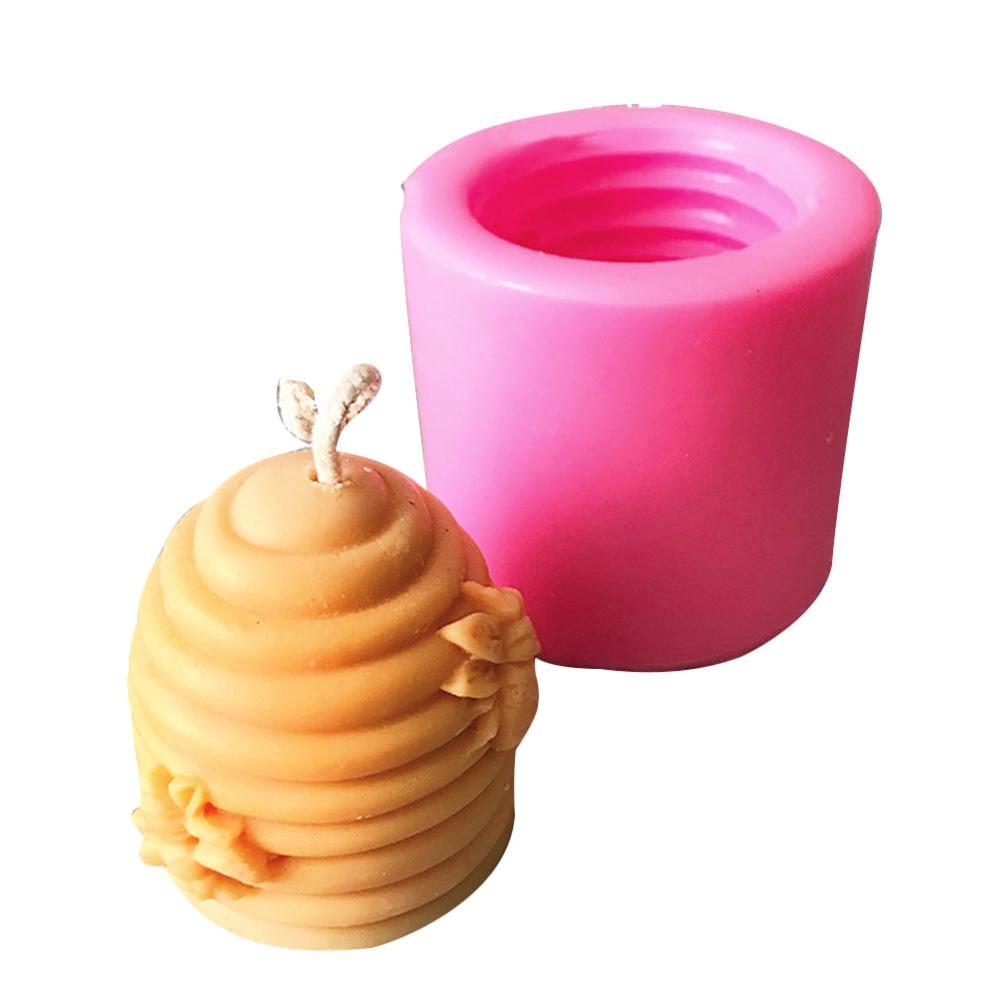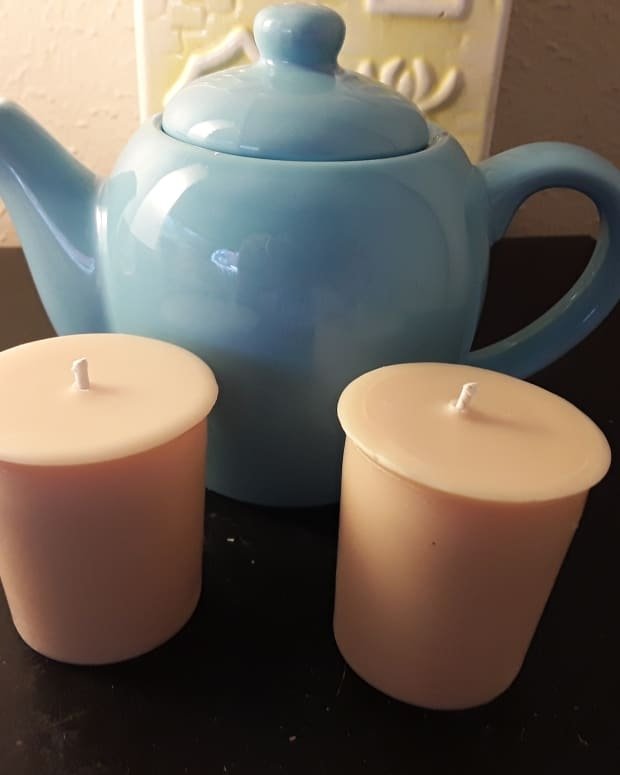Starting a candle making business from the comfort of your own home can be an exciting and rewarding venture. However, before diving into this creative endeavor, it is essential to have a clear understanding of the legal aspects involved. One crucial aspect that every aspiring candle maker needs to consider is whether or not they will need to establish themselves as a sole proprietor.
In this blog post, we will explore the ins and outs of sole proprietorship for home-based candle making businesses. We will delve into what exactly sole proprietorship means, how it applies to businesses like yours, and why it is essential to comprehend its implications. By gaining a solid understanding of this legal structure, you can make informed decisions about starting and running your candle making business from home.
Understanding the concept of sole proprietorship and its relevance in your venture is vital as it affects various aspects of your business. From complying with legal requirements and managing taxes to addressing personal liability risks and marketing considerations – all these areas are influenced by whether or not you choose to operate as a sole proprietor. By navigating these aspects effectively, you can ensure both legal compliance and long-term success for your home-based candle making business.
So, join us on this insightful journey as we unravel the world of sole proprietorship for candle making from home. Gain valuable knowledge that will empower you to make informed decisions while building your brand, fulfilling legal obligations, maximizing tax benefits, protecting your assets, and scaling your business. Let’s dig deeper into what it means to be a sole proprietor in the realm of home-based candle making.
Understanding Sole Proprietorship
Understanding Sole Proprietorship: What is sole proprietorship and how does it apply to home-based businesses like candle making? Exploring the benefits and drawbacks of choosing this legal structure.
Sole proprietorship is a common legal structure for small businesses, including home-based businesses like candle making. It is the simplest form of business ownership, where an individual operates their business as an extension of themselves. As a sole proprietor, you have full control and ownership over your business, without needing to register it as a separate legal entity.
One benefit of choosing sole proprietorship for your home-based candle making business is the ease of setup and operation. Unlike other legal structures that require formal procedures and paperwork, starting as a sole proprietor typically involves minimal requirements or costs. You can simply start your business by selling homemade candles from your home without having to go through complex registration processes.
Another advantage is the flexibility that comes with being a sole proprietor. You have complete autonomy in decision-making and can change or adjust your business strategies quickly as per market demands. Additionally, any profits earned from your candle making venture are considered personal income, which means you won’t have to deal with complex tax filings associated with other legal structures.
However, there are also some drawbacks to consider when choosing sole proprietorship for your home-based candle making business. One key drawback is unlimited personal liability. As a sole proprietor, you are personally responsible for all debts and obligations incurred by your business. This means that if someone sues your business or if it incurs significant debt, your personal assets could be at risk.
In summary, understanding sole proprietorship is essential for anyone considering starting a candle making business from home. The simplicity and flexibility make it an attractive option for many entrepreneurs. However, it’s crucial to weigh the benefits against the potential risks associated with unlimited personal liability before deciding on this legal structure. It is recommended to consult with professionals such as lawyers or accountants familiar with small business laws to ensure compliance and make an informed decision.
Legal Requirements for Home-Based Candle Making
Starting a home-based candle making business requires understanding and complying with specific legal requirements and regulations. Before embarking on this venture, it is crucial to familiarize yourself with these obligations to ensure a smooth and compliant operation. One important consideration is the choice of legal structure for your candle making business, with sole proprietorship being a common option for many small home-based businesses.
In terms of legal requirements, there are several aspects to consider when starting a candle making business from home. Firstly, you may need to obtain necessary permits or licenses required by your local government or municipality.
These permits typically involve ensuring compliance with safety regulations, fire codes, and zoning restrictions. Sole proprietorship can play a significant role in meeting these requirements as it allows for simplicity in obtaining the necessary permits without additional layers of complexity that may be associated with other legal structures.
Additionally, depending on your location, you may also need to register your business name or obtain a sales tax permit if you plan on selling your candles directly to customers. Sole proprietorship is often advantageous in meeting these obligations as it allows for ease of registration under your own name without separate legal entities or formalities.
| Legal Requirement | Description |
|---|---|
| Permits and Licensing | Obtain necessary permits and licenses according to local government regulations. |
| Safety Regulations | Ensure compliance with safety regulations, including fire codes and hazardous materials handling. |
| Zoning Restrictions | Adhere to zoning restrictions that may limit certain types of businesses from being operated at home. |
| Business Name Registration | Register your business name if required by local jurisdiction. |
| Sales Tax Permit | Obtain a sales tax permit for selling candles directly to customers. |
By understanding and fulfilling these legal requirements, you can ensure that your home-based candle making business operates within the confines of the law, minimizing the risk of penalties or legal complications. Sole proprietorship can be an advantageous legal structure to meet these obligations, as it provides simplicity and flexibility for complying with various permits, licenses, and registrations necessary for starting a candle making business from home.
Tax Implications
As a sole proprietor in the candle making industry, understanding the tax obligations is crucial for maintaining compliance with the law and maximizing your financial success. Operating as a sole proprietor means that you are personally responsible for reporting and paying taxes on the income generated from your candle making business. This section will explore some key tax implications and considerations that candle makers should be aware of.
- Reporting Income: As a sole proprietor, you are required to report all of your business income on your personal tax return using Schedule C, Profit or Loss from Business. This form allows you to report your gross earnings, deduct eligible expenses, and calculate your net profit or loss. It’s important to keep detailed records of all your business income to ensure accurate reporting.
- Deductions: One of the significant advantages of operating as a sole proprietor is the ability to deduct eligible business expenses. Candle makers can deduct expenses such as raw materials, packaging supplies, equipment purchases, marketing costs, and even home office expenses if you have a dedicated space for conducting your candle making business.
- Self-Employment Taxes: Sole proprietors are also subject to self-employment taxes. These taxes cover Social Security and Medicare contributions, and they must be paid in addition to your regular income taxes. The current self-employment tax rate is 15.3%, but you may be eligible for a deduction on a portion of this tax.
- Estimated Quarterly Payments: Unlike employees who have their taxes withheld from each paycheck, sole proprietors must make estimated quarterly tax payments throughout the year to meet their income tax and self-employment tax obligations. It’s essential to calculate your estimated tax liability accurately and consistently make these payments to avoid penalties or interest charges.
| Expense Category | 2019 Expenses (USD) |
|---|---|
| Raw Materials | $1,500 |
| Packaging Supplies | $500 |
| Equipment Purchases | $2,000 |
| Marketing Costs | $1,000 |
| Income | Tax Rate |
|---|---|
| First $132,900 | 15.3% |
| Above $132,900 | 2.9% (Medicare) |
Understanding the tax implications is vital for maintaining compliance with the law and ensuring the financial health of your candle making business. Consult with an accountant or tax professional to ensure you are taking full advantage of available deductions and reporting your income correctly.
Personal Liability and Asset Protection
When starting a home-based candle making business, it is essential to consider the personal liability risks that may arise. As a sole proprietor, you and your business are considered one entity, meaning that your personal assets can be at risk if any legal issues or liabilities arise. This is an important factor to consider when deciding on the legal structure for your candle making business.
One way to mitigate personal liability risks as a sole proprietor is by obtaining the necessary insurance coverage. Liability insurance can protect you in case of accidents or injuries related to your candle making activities. For example, if a customer gets injured using one of your candles and decides to sue, liability insurance can help cover legal fees and damages awarded.
In addition to liability insurance, property insurance is also crucial for protecting your assets. If you have invested in expensive equipment or materials for your candle making business, property insurance can provide financial compensation in cases of theft, fire, or other unexpected events that may damage or destroy your assets.
To ensure maximum protection, it is advisable to consult with an insurance professional who specializes in small businesses or home-based operations. They can help assess your specific needs and recommend suitable coverage options based on the nature of your candle making activities.
Branding and Marketing Considerations
Building a Strong Brand Presence
When operating as a sole proprietorship in the candle making industry from home, it is crucial to focus on building a strong brand presence. A well-established brand can help differentiate your candles from competitors and attract loyal customers. It is essential to develop a unique value proposition and communicate it effectively through branding and marketing strategies.
Creating a Unique Brand Identity
To stand out in the market, it is important to create a unique brand identity that resonates with your target audience. This includes developing a compelling brand name, designing a memorable logo, and establishing consistent visual elements across all marketing materials. Consider the story behind your candles, such as their inspiration or the ingredients used, and incorporate these aspects into your brand identity to make an emotional connection with customers.
Abiding by Legal Requirements
As a sole proprietor, you must also navigate legal requirements when advertising and selling candles. It is important to understand labeling regulations specific to the candle industry to ensure compliance. For example, certain warning labels may be required for candles with particular ingredients or scents. Ignoring these requirements can lead to legal issues and damage your brand’s reputation. Consult local authorities or regulatory agencies for guidance on specific labeling guidelines for candle making businesses in your area.
The Importance of Compliance
Operating as a sole proprietor places the responsibility of legal compliance solely on you as the business owner. It is essential to comply with advertising laws, intellectual property rights, and any other regulations pertinent to your business activities. Engaging in unethical practices or misleading advertising can result in severe consequences, including fines or even legal action against your business.
Advertising Strategies and Platforms
When considering how sole proprietorship affects branding and marketing strategies for home-based candle makers, it is important to select appropriate advertising platforms based on your target audience. Social media platforms, such as Instagram and Pinterest, can be effective for showcasing visually appealing candles and engaging with potential customers. Additionally, consider collaborating with influencers or bloggers in the niche to expand brand reach.
Social Responsibility and Sustainability
In today’s market, consumers are increasingly conscious of social responsibility and sustainability. Consider incorporating these values into your branding and marketing strategies to appeal to environmentally aware customers. Highlight any sustainable practices used in your candle-making process, such as using eco-friendly ingredients or packaging materials. Demonstrating social responsibility can positively impact your brand image and attract like-minded customers.
Record-Keeping and Bookkeeping
Why Record-Keeping is Important
Record-keeping and bookkeeping are crucial aspects of running any business, including a home-based candle making business. Accurate and detailed financial records help sole proprietors in the candle making industry keep track of their income, expenses, and overall financial health. These records not only facilitate tax compliance but also provide valuable insights for business growth and decision-making.
By maintaining comprehensive financial records, candle makers can analyze the profitability of different product lines, track expenses such as raw materials or packaging costs, and identify areas where they can reduce costs or improve efficiency. This information allows sole proprietors to make informed decisions about pricing strategies, marketing investments, and potential areas for expansion. Furthermore, well-maintained records provide credibility when seeking financing or partnerships that may be required for scaling the home-based candle making business.
Effective Record-Keeping Practices
To ensure accurate record-keeping and efficient bookkeeping practices, sole proprietors should establish effective systems from the outset. Here are some key steps to consider:
- Separate Business and Personal Finances: Open a dedicated bank account and credit card for your candle making business. This separation makes it easier to track expenses and income related specifically to your business activities.
- Use Accounting Software: Invest in accounting software specifically designed for small businesses or consider working with a professional bookkeeper who can help set up an efficient system tailored to your needs.
- Organize Receipts and Invoices: Keep all receipts and invoices categorized by type (e.g., raw materials, packaging supplies) to accurately track expenses. Utilize online cloud storage solutions or physical filing systems to maintain organized records.
- Monitor Cash Flow: Regularly reconcile your bank accounts with your financial records to ensure accuracy and identify any discrepancies promptly.
- Stay Updated on Tax Obligations: Be aware of relevant tax deadlines, reporting requirements, and potential deductions to maximize your tax benefits as a sole proprietor.
Seeking Professional Assistance
While it is essential for candle makers operating as sole proprietors to maintain accurate records and bookkeeping practices, it is advisable to seek professional assistance when necessary. Consulting with an accountant or bookkeeper experienced in supporting small businesses can ensure compliance with tax regulations, identify potential areas for improvement, and provide valuable guidance tailored to your specific needs.
Investing in professional advice can help sole proprietors stay organized, save time, and focus on the growth and success of their home-based candle making business.
Scaling Your Home-Based Candle Making Business
As a candle maker operating as a sole proprietor from home, there is significant potential for growth and expansion. One of the main advantages of being a sole proprietor is the flexibility to increase production and meet growing customer demand without needing to navigate complex legal structures or involve additional partners. This allows candle makers to take full control of their business growth and make decisions that align with their vision.
However, scaling a home-based candle making business comes with its own set of challenges. One major obstacle is managing increased production capacity while maintaining product quality and consistency. It may be necessary to invest in additional equipment, raw materials, and workspace to meet the demands of an expanding customer base. This requires careful financial planning and resource allocation.
Another challenge when scaling a home-based candle making business is effectively marketing your products to reach a larger audience. As a sole proprietor, you are responsible for branding and marketing your candles, which can become more complex as your business grows.
It is important to develop a strong brand presence through consistent messaging and visually appealing packaging that sets your candles apart from competitors. Implementing effective marketing strategies, such as social media campaigns or collaborating with influencers in the industry, can help broaden your reach.
Expanding operations also means addressing logistical concerns such as order fulfillment, shipping, and storage. As more orders come in, it may be necessary to streamline these processes by outsourcing certain tasks or partnering with third-party logistics providers. Efficiently managing inventory is crucial to avoid stockouts or excess inventory holding costs.
While scaling your home-based candle making business offers exciting opportunities for growth, it’s essential to consider whether maintaining sole proprietorship status aligns with your long-term goals. As demand increases substantially, you might explore transitioning into a more formal business structure, such as a limited liability company (LLC), to protect personal assets and limit personal liability. Consulting with an attorney or accountant can help you make informed decisions about the legal and financial aspects of scaling your business.
Conclusion
In conclusion, understanding sole proprietorship is crucial for home-based candle making businesses. By choosing this legal structure, entrepreneurs can enjoy the benefits of flexibility, simplicity, and full control over their operations. However, it is important to be aware of the specific legal requirements and regulations involved in starting a candle making business from home.
Operating as a sole proprietor in the candle making industry also has significant tax implications. Sole proprietors have the advantage of potential deductions and can report their income on their personal tax returns. However, it is essential to accurately keep track of financial records for tax purposes and consider consulting with a professional accountant or tax advisor.
Another important aspect to consider is personal liability and asset protection. When operating as a sole proprietor, personal assets may be at risk if any legal claims or liabilities arise from the business. It is advisable to obtain the necessary insurance coverage to protect against such risks.
Branding and marketing strategies also play a significant role in the success of a home-based candle making business. Sole proprietors should focus on building a strong brand presence while ensuring compliance with legal requirements when advertising and selling their candles.
Lastly, before making any legal decisions regarding sole proprietorship, it is highly recommended that readers seek professional advice. Consulting with an attorney or business advisor who specializes in small businesses can provide valuable insights and guidance tailored to individual circumstances.
Frequently Asked Questions
Can I run a candle business from home?
Yes, you can definitely run a candle business from home. In fact, many successful candle entrepreneurs have started their businesses in the comfort of their own homes.
Running a candle business from home provides numerous advantages, such as flexibility in working hours and low start-up costs, as you don’t need to invest in a separate storefront or workspace. Additionally, it allows for customization and personalization in crafting your candles according to your own unique style.
What do I need to start a candle business from home?
To start a candle business from home, there are a few essential things you will need. Firstly, you’ll require the necessary supplies and equipment for making candles, such as wax, wicks, fragrance oils or essential oils, containers or molds, a heat source (like a double boiler or melting pot), and various tools like thermometers and scales. It’s also important to have proper storage for your materials and finished candles.
Additionally, you may need to invest in packaging materials and labels to create attractive presentations. Lastly, you should consider marketing materials like business cards or online platforms since promoting your candle business is vital for reaching potential customers.
What business category is candle making?
Candle making falls under the category of “manufacturing” when it comes to defining its business category. Although it is not on an industrial scale like large companies producing candles in bulk quantities, candle making at home still involves creating products by using raw materials and transforming them into finished goods ready for sale – which aligns with the essence of manufacturing as a business category.
While technically considered a manufacturing business, operating from home offers unique advantages since it allows entrepreneurs to maintain more direct control over every aspect of their production process while enjoying the convenience of working within their own space.

Welcome to my candle making blog! In this blog, I will be sharing my tips and tricks for making candles. I will also be sharing some of my favorite recipes.





